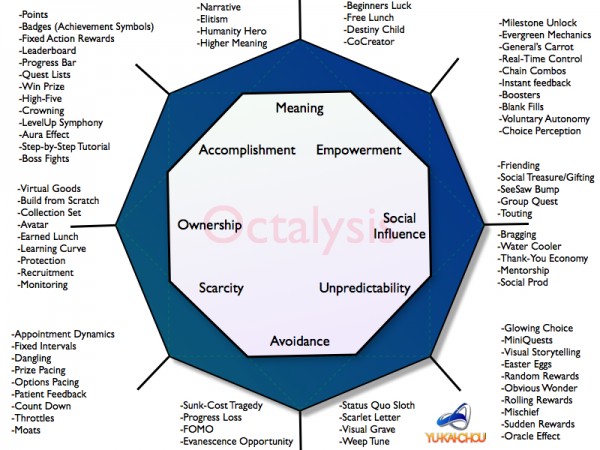Hi,
I wanted to share an interesting website that seeks to document what makes games fun and addictive.
The author Yu-Kai Chou describes and groups lots of common techniques that you will have seen in different games.
He arranges the groups of similar techniques in an octogon shape where the things on the left are ‘left-brained’ optimiser-related extrinsic motivators such as leveling up and score boards, and the right side are more intrinsic-motivation related things such as social interaction.
The top groupings are ‘white-hat’ techniques that appeal to positive things such as creativity, story-telling and life meaning. The bottom groupings are ‘black-hat’ techniques that I think are really interesting such as scarcity, fear of missing out and gambling-related lucky or unpredictable events.
I find it useful since I have difficulty grasping game play techniques which often work the opposite to how they logically should. For example, apparently the very successful Candy Crush game restricts users from playing for more than half an hour or so which means that they’re never satiated and are always thinking about when they can log on to play again. I would never think of that! It’s funny how making the game harder to play makes people want to play it more. See half-way down this page for the heading ‘Gamification Core Drive #6: Scarcity and Impatience’
The author describes his approach as being human-focused rather than function-focused design. Coders are probably too function-focused most of the time. I think this is the reason why I struggle to achieve that elusive fun factor in my game ideas.











